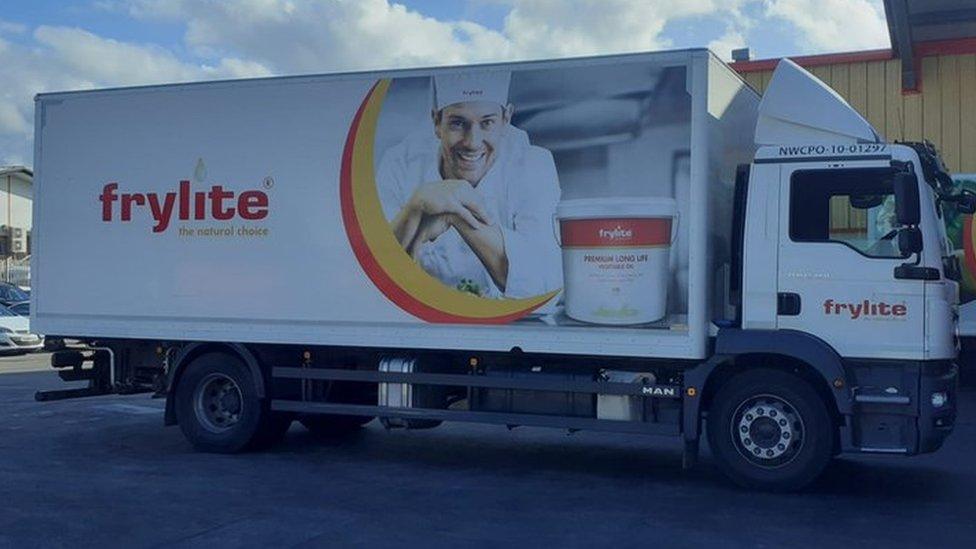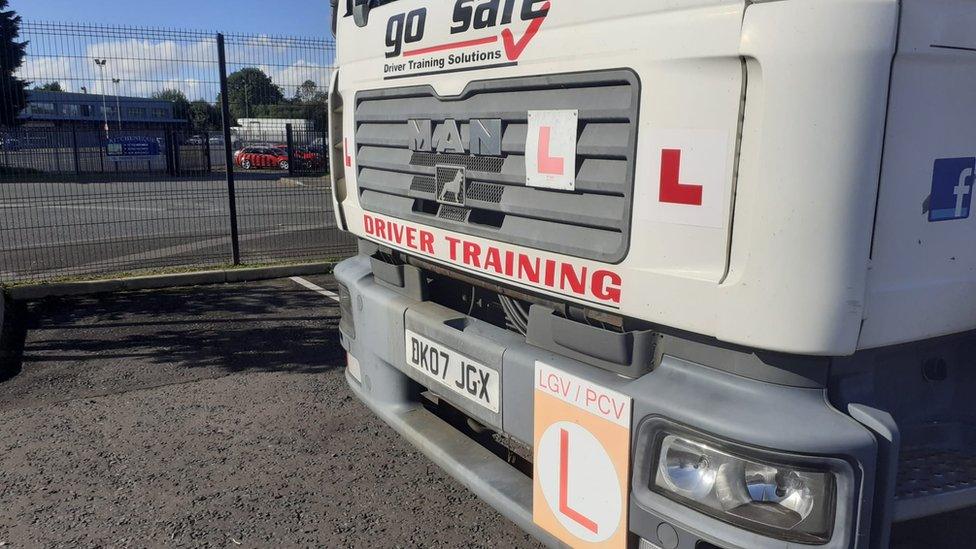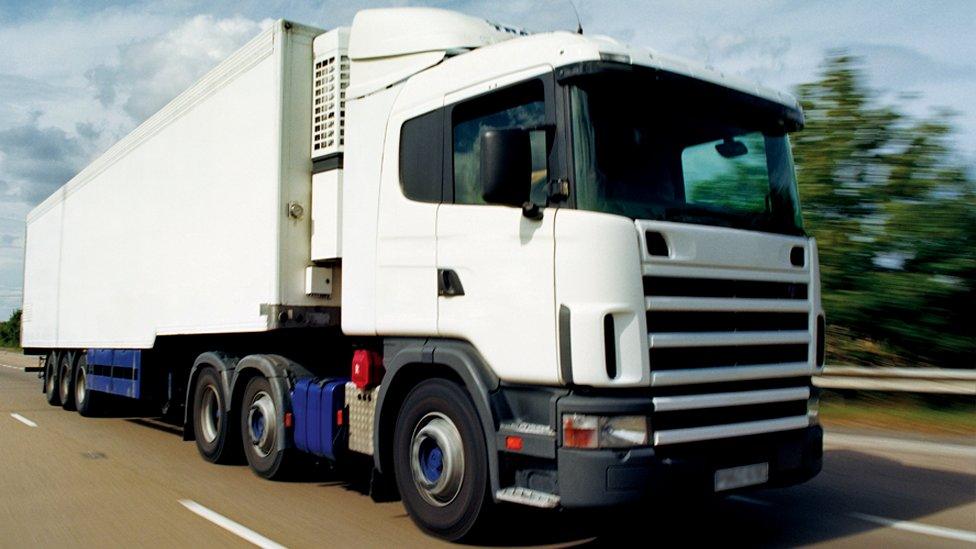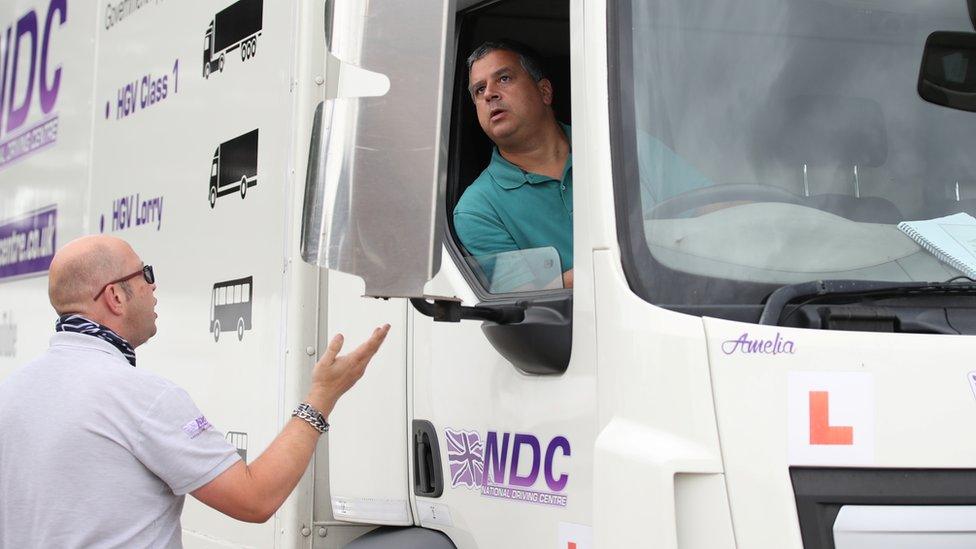HGV test changes 'would help ease driver shortage'
- Published
- comments

Frylite says it is struggling to recruit lorry drivers
Stormont has been urged to make changes to heavy goods vehicle (HGV) driving tests to help alleviate the shortage of lorry drivers.
Logistics UK says there is a shortage of about 3,000 to 4,000 haulage drivers in Northern Ireland.
That has led to calls from within the industry for a fast tracked testing process.
The Department for Infrastructure (DfI) said testing was not "a significant reason" for the shortage.
The department said 1,290 tests had been carried out since April.
But Martin Gormley of Strabane-based firm Frylite said the current process is lengthy and is stopping new drivers coming into the industry.
"The [testing] process takes too long and there's not enough new recruits coming into the sector," he said.
Speaking to BBC Radio Foyle, Mr Gormley said the firm, which operates from five sites across the island of Ireland, has had its growth coming out of lockdown hindered because of the current testing process.
"The hospitality industry has taken off again and our customers are trading again very strongly, that's affecting us in terms of recruiting new people to meet that growth," Mr Gormley said.
"At the moment we are able to meet demand, but as our customer base continues to grow then with delays of recruiting drivers... if it continues it will limit what we can do," he explained.
Frylite's customers include fast food giants such as Burger King and KFC, as well as many hotels and restaurants across the island of Ireland.


The industry would say this has been a problem for some years, maybe half a decade or more but a culmination of factors has made it much more acute now in this post-Covid phase.
During lockdown there was basically reduced testing and a backlog built up. It has been slow to clear that backlog.
Part of it is catch-up, something that is happening across our economy in all sorts of ways. We have this sudden surge of demand for all sorts of goods and services, and the capacity of the systems to actually supply that isn't there.
The hope would be that over time we reach a new equilibrium where supply and demand pretty much match up. But the process of getting there is pretty bumpy.

Mr Gormley said the company was now using vans instead of lorries in some instances.
"We have had to change our business model from C-class [lorry] drivers down to many B-class drivers with vans, and that is a decision we had to take six months ago," Mr Gormley said.
"Get vans into the system so that we can continue to meet the needs of our customers.
"The process in terms of getting new drivers to a level where they are able to drive a 12-to-18 ton truck needs to be shortened, fast-tracked with more testers put in place.
"All of that needs to happen now not six months from now as our problems are current."

Go Safe Driver Training School in Londonderry wants to see more test slots opened up.
Nigel Ferson from Go Safe Driver Training School in Londonderry also said immediate changes were needed
He said there was not enough testing capacity and more slots were urgently needed.
"At the minute we are booked right up to the end of November - even further - but if we could get more test slots we could train more people," he said.
Mr Ferson added that there were delays in people getting their theory, hazard perceptions and CPC (Certificate of Professional Competence) module 2 training.
In a statement the DfI said: "In the first four full months since driving tests resumed on 23 April, the DVA has conducted 1,290 LGV driving tests, which is 65% higher than the five-year average for that period, demonstrating a clear commitment to providing increased testing capacity for the sector.
"Testing is not seen as a significant reason for HGV driver shortages here."
The department said HGV driver shortages were "down to a variety of factors".
Related topics
- Published15 October 2021

- Published27 September 2021

- Published10 September 2021
